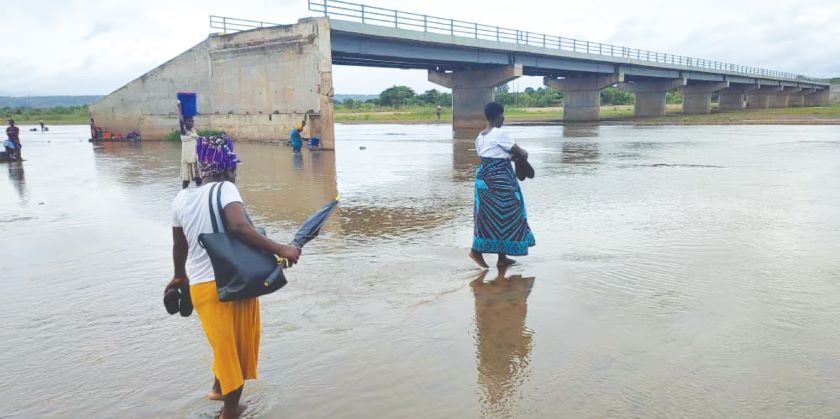Construction council chucks out eight firms
National Construction Industry Council (NCIC) has deregistered eight construction companies for contravening the law governing the sector.
The eight firms attracted the wrath of the NCIC board following 2 081 monitoring visits the council made to construction sites across the country between March 2021 and July 2023.

During the visits, 144 stop orders (suspensions) were also issued on sites to firms that did not comply with regulations of the National Construction Industry (NCI) Act and other relevant laws.
NCIC corporate affairs officer Lyford Gideon said in an interview the firms had varied disciplinary issues, including failure to register projects, use of non-sustainable construction materials, lack of registered parties on site and non-compliance with joint ventures regulations.
“One particular example was allowing their firms to be ‘used’ by other parties in contravention of codes of ethics governing the industry,” said Gideon in a written response.
But he disclosed that the council still has a few other disciplinary issues before the board.
Out of the eight deregistered firms, three are into consulting business while the others in construction.
During the same period, the council also registered 2 420 new contractors and 49 consultants.
When a firm is removed from the council’s database, it cannot participate in any construction work either directly or indirectly. But the firm is permitted to re-apply for registration after seven years.
However, Gideon explained that individuals behind deregistered entities may participate in a “totally different form not behind the same veil of the deregistered firm”.
NCIC was established in 1996 by the NCI Act of Parliament to regulate, develop and promote the construction industry in the country and according to the Act’s Section 20, any individual is prohibited from carrying on business in the construction industry if not registered under the Act.
Every financial year, the council targets around 1 000 projects for monitoring and, according to Gideon, 30 percent of the projects monitored are generally found to be non-compliant.
He disclosed that about 80 percent of the projects established to be non-compliant belong to non-governmental organisations (NGOs) and the private sector.
However, Gideon said almost all suspended projects were allowed to proceed after fulfilling the compliance requirements as the council’s aim is to ensure that there is total compliance other than foiling infrastructure development.
“When we talk of suspension some entities take less than a week to meet the requirements and the suspension or stop order is lifted,” he said.
“As a council, we believe the sector should operate strictly in compliance with the relevant statutes. We believe with strong adherence to the law, codes of ethics and various standards of practice, it is possible to transform the industry in a sustainable fashion and ensuring that we produce quality infrastructure projects.”
But commenting on the deregistration issue, construction lawyer Gracian Luzu hinted on the need for stakeholders to help NCIC in bringing sanity in the industry.
Said Luzu: “Right now we are at a time that there is no room for compromise on the need to support the council in its efforts to ensure standards.
“The council can bring sanity in the industry by continuing to enforce legally-sanctioned standards and championing policies and regulations that ensure that this is achieved.
“Issues or allegations of corruption also have to be emphasised strategically to ensure that corruption does not frustrate efforts to ensure quality in the industry. Above all, we need to deliberately focus on rule of law in the industry.”
Luzu observed that calamities such as Cyclone Freddy have “impartially audited the quality of approaches and standards” in the industry, thereby exposing the council’s huge responsibility to carry out.
However, the lawyer expressed concern with the council’s target of 1 000 projects annually, describing the figure as too little. He said monitoring should be in respect of all the registered firms.
On non-compliance, Luzu said while he did not have relevant statistical references, he suspects most NGOs or private sector do not engage relevant and competent professionals to conduct thorough legal due diligence exercise on prospective contractors before engaging them.
“There is, therefore, need for NGOs to start using relevant professionals such as lawyers experienced in the construction space to conduct due diligence on prospective contractors. That way, the risk of non-compliance may be minimised significantly,” he said.
In September last year, NCIC launched the construction cost indices as one way of ensuring sanity in the industry following an outcry from stakeholders about rocketing bid prices and unpredictable construction costs.
Speaking during the launch, NCIC vice-board chairperson Monica Kandodo said they were pleased to introduce a home-grown solution to unrealistically high bids which for a long time had caused time and cost overruns and a drain of public resources.




